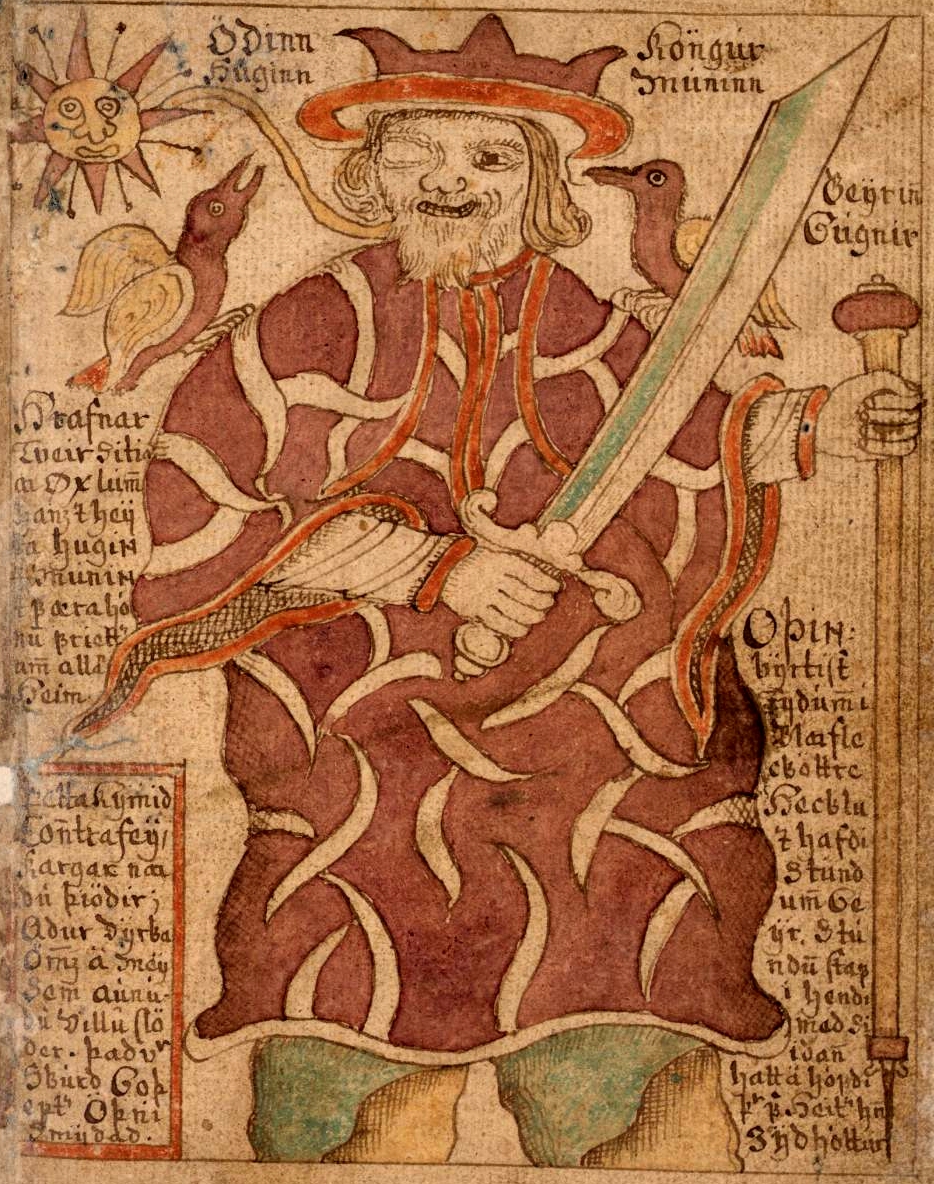| Name ▲▼ | Origin ▲▼ | Description ▲▼ |
|---|---|---|
| God name "Magni" | German | This is a god of the future who has not yet arrived & a son of Thor |
| Demon name "Mahr" | Germanic | demonic being similar to an Alp germanic / Slavic |
| God name "Mani" | Germanic / Nordic / Icelandic | moon god. He guides the chariot of the moon through the night sky and is involved in the downfall of the world at Ragnarok.... |
| God name "Modi" | German / Norse | This son of Thor is a god that has yet to arrive |
| Hero name "Munchausen" | German | The hero of a volume of travels, who meets with the most marvellous adventures. The incidents have been compiled from various sources, and the name is said to have pointed to Hieronymus Karl Friedrich von Munchhausen, a German officer in the Russian army, noted for his marvellous stories. |
| Goddess name "Nanna" | Germanic | A goddess of plants & flowers |
| Goddess name "Nanna" | Germanic | Goddess of plants and flowers. Germanic |
| Goddess name "Nemetona" | Roman / Celtic | Goddess of sacred groves. Consort to the Roman deity MARS. Evidenced at places such as Bath (England) and Mainz (Germany); but also in place names which include the etymological base nemeton (a shrine).... |
| King name "Nibelungen Hoard" | German | A mythical måśś of gold and precious stones, which Siegfried obtained from the Nibelungs, and gave to his wife Kriemhild as her marriage portion. It was guarded by Albric the dwarf. After the murder of Siegfried, his widow removed the hoard to Worms; here Hagan seized it, and buried it secretly beneath "the Rhine at Lochham," intending at a future time to enjoy it, "but that was ne'er to be." Kriemhild married Etzel with the view of avenging her wrongs. In time Gunther, with Hagan and a host of Burgundians, went to visit king Etzel, and Kriemhild stirred up a great broil, at the end of which a most terrible slaughter ensued. Volsunga Saga |
"Nix" | German | Kind busy-body. Little creatures not unlike the Scotish brownie and German kobold. They wear a red cap, and are ever ready to lend a helping hand to the industrious and thrifty. "Another tribe of water-fairies are the Nixes, who frequently åśśume the appearance of beautiful maidens."- T. F. T. Dyer: Folk-lore of plants |
| King name "Oberon" | German | Oberon king of the Fairies, whose wife was Titania. Shakespeare introduces both Oberon and Titania, in his Midsummer night's Dream. (Auberon, anciently Alberon, German Alberich, king of the elves.) |
| Angel name "Olinda" | German | An angel who is the protector of property. German |
"Ostara" | German | The old High German name for the Easter festival. |
| Goddess name "Ostara" | Germanic | Sun goddess. Associated with the coming of spring and one of the derivations of the term Easter, she equates with the Anglo-Saxon deity EOSTRE.... |
| Goddess name "Ostara/ Easter" | Germanic | A goddess of spring & the Sun |
| Spirit name "Phynnodderee" | German | Phynnodderee [the Hairy-one]. A Manx spirit, similar to the Scotch "brownie," and German "kobold." He is said to be an outlawed fairy, and the offence was this: He absented himself without leave from Fairy-court on the great levee-day of the Harvest-moon, being in the glen of Rushen, dancing with a pretty Manx maid whom he was courting. |
"Poldunica" | Germany | Polednica, Poludnica, Lady Midday. A young girl, a beautiful maiden or a crone who appears at the hottest part of a summer's day. She carries a scythe and will stop people in the field to ask difficult questions and if the person fails to answer a question or is evasive,she will strike them with illness or cut off their head. Germany |
| Goddess name "Rheda" | German | A valkirie and goddess of the Winter. German |
Table of Gods
Your guide to the World gods, spirits,
demons and legendary monsters

German Mythology Names
These names occur in Germanic mythologies and legends.
